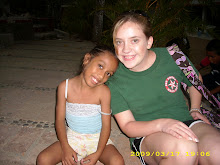The Moorchild is dedicated to all children who have ever felt
different. I didn't really think too much of that dedication until I completed the book. I think the dedication is another way of saying that the book is dedicated to all children. I feel that every child- and adult- has felt different at some point in their lives. I know I've experienced the feeling both in childhood and as a young adult. Then and now, I'm grateful for my support system of family and friends who are always there when difficult thoughts or problems arise. We discussed in class today the arguments that McGraw made in this book about growing up female and without parents, and compared Saaski with Pippi Longstock. Pippi had a support system in her life- she had Tommy, Annika, and her animals. I feel that Saaski did not grow up feeling like she did not have a support system for most of the book. This changes toward the end. When it is discovered by the villagers that Saaski is a changeling, they want to throw her into a fire. Her "father" Yanno tells her that "they will not lay a hand on her", and promises to protect her. I think that Saaski feels comfort from this act of protection and love, and comes to the realization that having parents or people in your life who protect you and care for you is so important. I also feel that is why she takes enormous risks to return a stolen human baby to its real parents - who raised her. She knows how loved that child will be and how important that love is to have; and also realizes that she belongs back home, among others like her. Though she didn't have the best childhood and was taunted and teased often, she did experience affection and care, and had to follow some rules set before her. I think that all of that will not be forgotten as she goes back to life on the Mound and will shape her as she matures in a positive manner.
